A convicted U.S. sexual predator killed at least four women in Canada after he fled the country while on bail, and authorities believe there are more victims.
Gary Allen Srery — who died in a U.S. prison in 2011 — made a run for the northern border after posting bail for a 1974 rape charge in Los Angeles and hid in the Calgary area in Western Canada, where authorities said he hunted women.
Through DNA advancement, Srery was tied to the February 1976 murders of Eva Dvorak and Patricia McQueen, both 14 at the time, whose bodies were found in an underpass, according to the Royal Canadian Mounted Police (RCMP) in Alberta.
Seven months later, he allegedly killed Melissa Rehorek, a 20-year-old housekeeper, who was found dead in a ditch along a major highway west of Calgary, and Barbara MacLean, a 19-year-old bank employee, who disappeared after leaving a bar in February 1977, Canadian law enforcement said.
SUSPECTED US SEX PREDATOR WHO LEFT VICTIM CREEPY MESSAGES CAPTURED IN FRANCE OVER A DECADE LATER
Almost five decades and 850 potential suspects later, Srery was identified as the potential killer in 2023 through genetic genealogy, the RCMP said during a Friday press conference.
DNA from an unknown male was confirmed as the same suspect in Rehorek and MacLean’s murders in 2003, but there wasn’t a match until 20 years later, according to the RCMP.
US CITIZEN ENGAGED TO BE MARRIED IN AUGUST KILLED IN MEXICO FOR UNBELIEVABLE, TRIVIAL REASON
Canadian authorities worked with U.S. and international agencies during the 2023 investigation into Srery, who was ultimately in an Idaho prison in 2011 while serving a life sentence for rape.
If he were still alive, he would have been 81 years old and charged with the four cold cases, according to authorities.
But law enforcement in Canada doesn’t believe the body count stopped at four. Srery lived in Canada illegally from 1974 to 1998 and lived a “transient” lifestyle, the RCMP said.
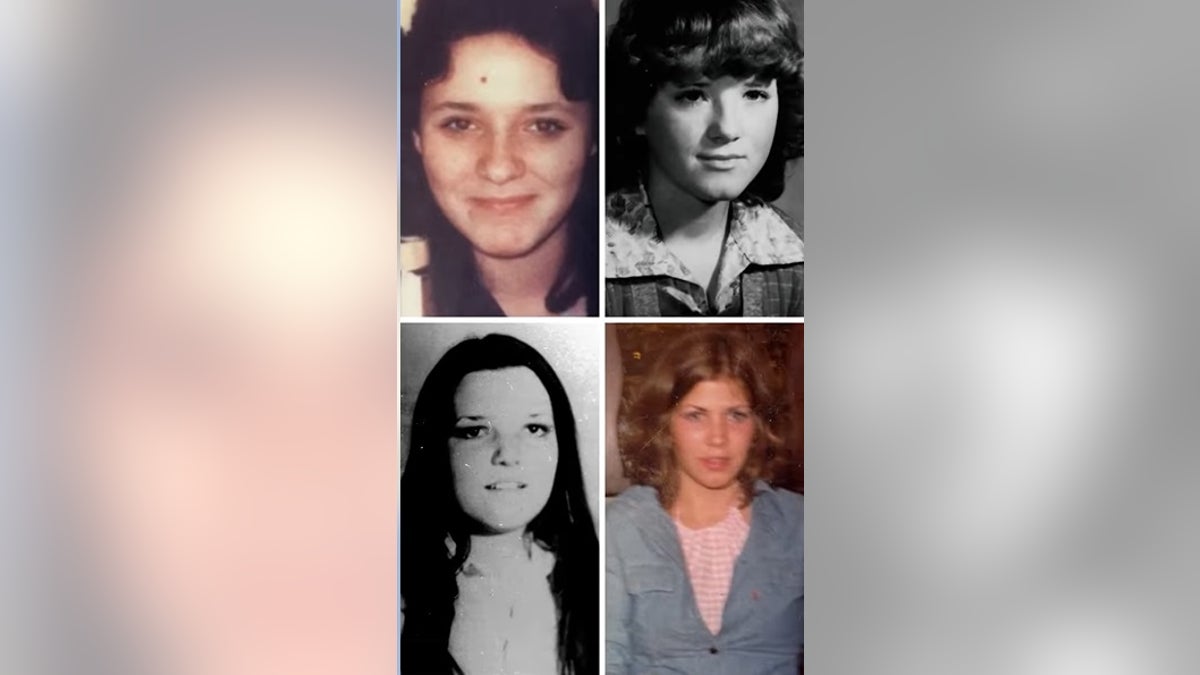
He used several different numbers, such as Willy Blackman and Rex Long, often changed his physical appearance, switched up his cars and moved all over Canada, the RCMP said.
Srery was finally busted for a sexual assault and convicted in 1998 in New Westminister, Canada, and deported to the U.S., where he was convicted in Idaho for sexually motivated crimes and sentenced to life in prison.
INMATES WHO KILLED NOTORIOUS MOBSTER WHITEY BULGER AGREE TO PLEA DEALS: SURPRISING FACTS FROM GANGSTER’S FBI FILES
The RCMP created a map and timeline of his potential whereabouts in Canada, which included Calgary from 1976 to 1977, as well as Alberta and British Columbia from the mid-to-late 1970s to 2003, the RCMP said in a press release.
But police don’t believe his crime spree was limited to the four murders in a 12-month span, and they turned to the public for help putting together a detailed timeline of his movements.
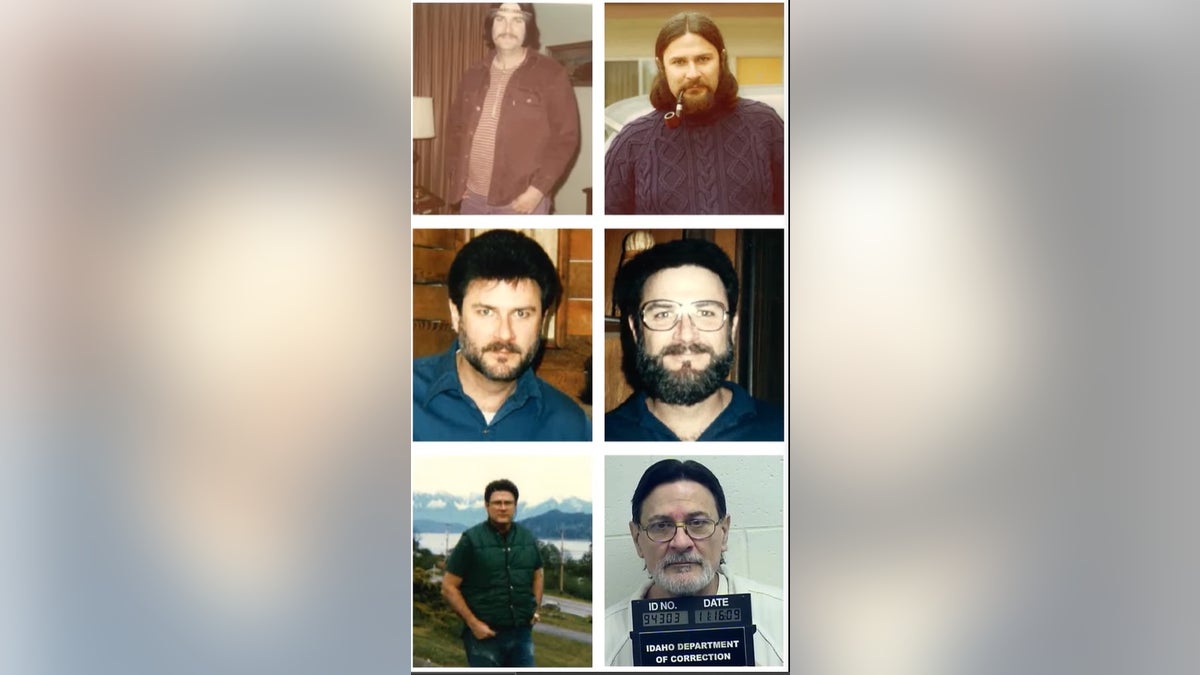
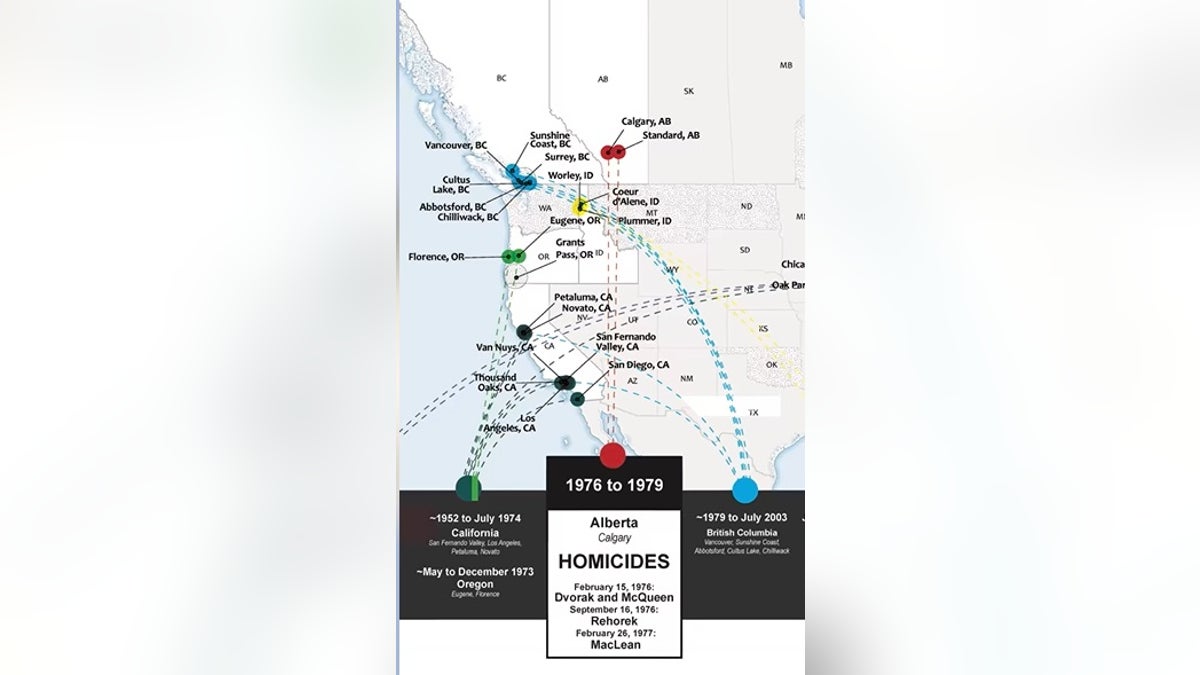
“We truly believe the suspect is not involved in only four homicides, but there’s a distinct possibility that he’s responsible for many more, either in Alberta, British Columbia or the western United States,” RCMP Staff Sgt. Travis McKenzie said during Friday’s press conference.
When Srery fled the US, he had a lengthy criminal history, including convictions for forcible rape, kidnapping and burglary, CBS News reported.
JOHN WAYNE GACY’S DEATH ROW LAWYER EXPLAINS WHY HE LIKELY KILLED DOZENS MORE – AND HAD HELP
One of the serial killer’s U.S. victims said, “Mr. Srery, you’ve damaged my life,” during an emotional victim impact statement before he was sentenced to prison, The Spokesman-Review reported in October 2009.
“You have made me have a stroke, because of the stress and the damage that you did to me in that bathroom. Do you understand me?” the survivor said in court in 2009, according to the local newspaper, which noted the victim snapped at Srery several times to look at her.
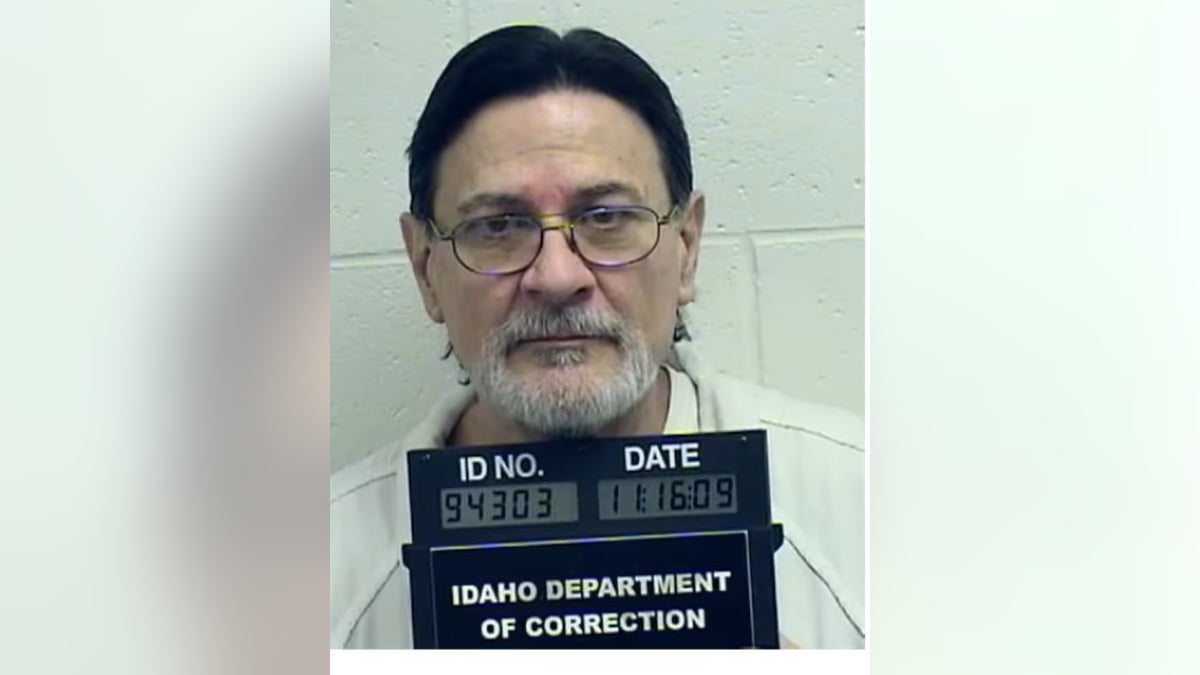
She said the stroke that she suffered during the attack caused “irreversible damage” to her left side.
“I have grandchildren, I have children, I have a family that loves me very much that has had to watch me go through living hell, and it is not fair. You damaged me … and I can’t be repaired,” the survivor said. “There has got to be a lifetime sentence for you, just as I’m having to pay a lifetime sentence for no wrongdoing.”
FISHERMAN BLAMES BIGFOOT FOR FRIEND’S MURDER
Canadian authorities are determined to get justice for all of Srery’s potential victims.
WATCH: RCMP’S INVESTIGATION TIMELINE, CRIME SCENE PHOTOS
The RCMP urged anyone who recognizes Srery or knew him by any of his many aliases to call in tips to the Alberta RCMP Historical Crime Unit via K-IDEOLOGY@rcmp-grc.gc.ca or by phone at 780-509-3306.
“For over forty years, investigators did not give up in their pursuit to identify those responsible for these murders,” Superintendent David Hall, Officer in Charge of the Alberta RCMP’s Serious Crimes Branch, said in a statement. “Identifying the perpetrator does not bring Eva, Patsy, Melissa or Barbara back. It is our hope, however, that the families are finally able to have some answers as to what happened to their loved ones all of those years ago.”
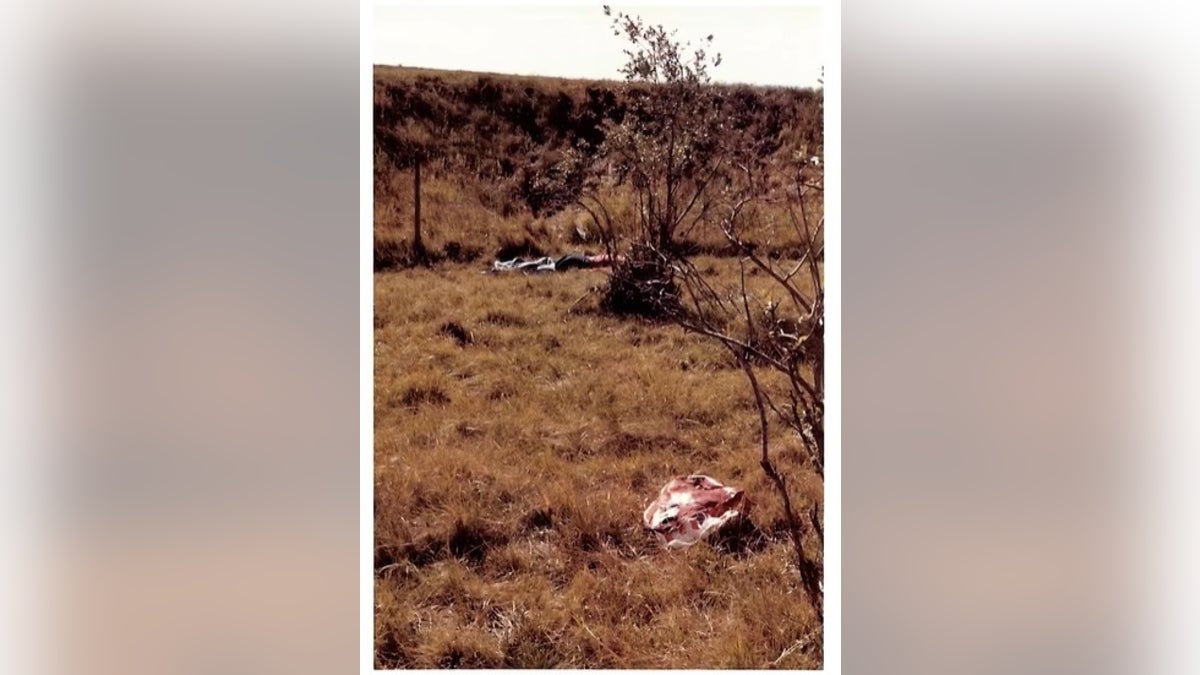
Never forget the victims
The RCMP released a short synopsis of each of the Canadian victims.
1. and 2. Eva Dvorak and Patricia McQueen, both 14
The two junior high students were close friends who went to the same Calgary school. On Feb. 14, 1976, they were walking in downtown Calgary when they vanished.
Their bodies were found the next day under the Happy Valley Overpass on Highway 1, a short distance outside the city.
SIGN UP TO GET TRUE CRIME NEWSLETTER
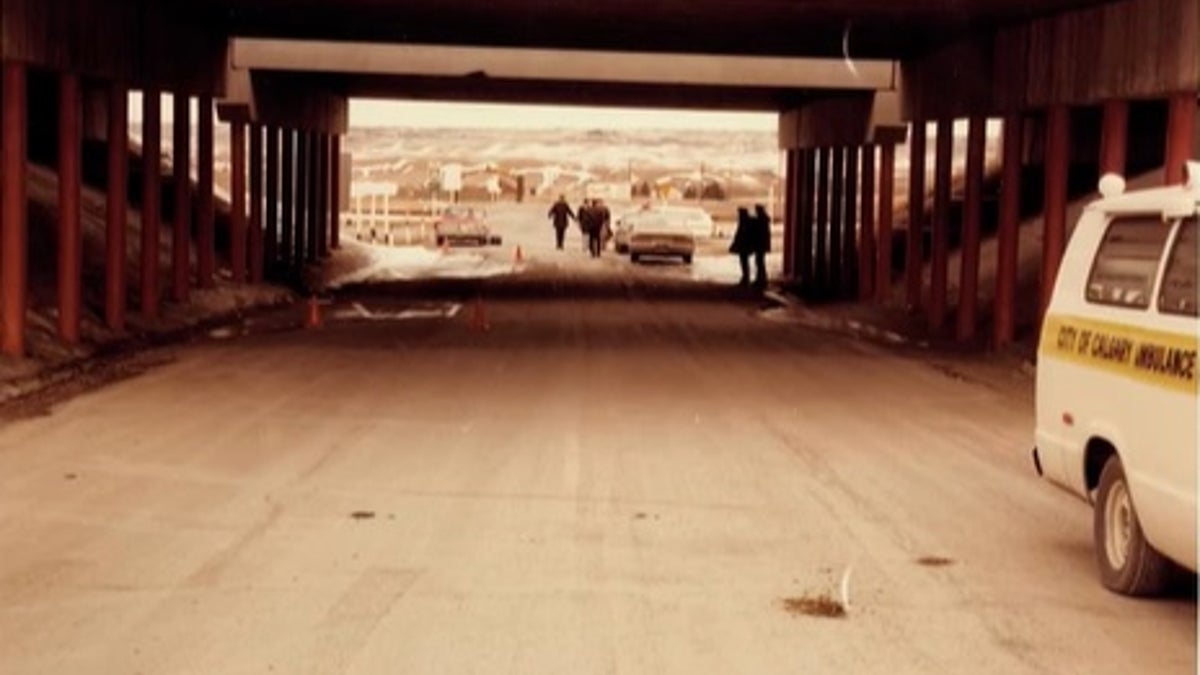
3. Melissa Rehorek, 20
Rehorek was originally from Ontario who moved to Calgary in the spring of 1976, and worked as a housekeeper.
She lived in the YWCA in downtown Calgary, and was last seen on Sept. 15, 1976, by her roommate, who told police Rehorek intended on hitchhiking out of the city during her time off.
On Sept. 16, 1976, her body was found in a ditch off what is now known as Township Road 252. Again, the ditch was near a highway and only a short distance outside the city.
GET REAL TIME UPDATES DIRECTLY ON THE TRUE CRIME HUB
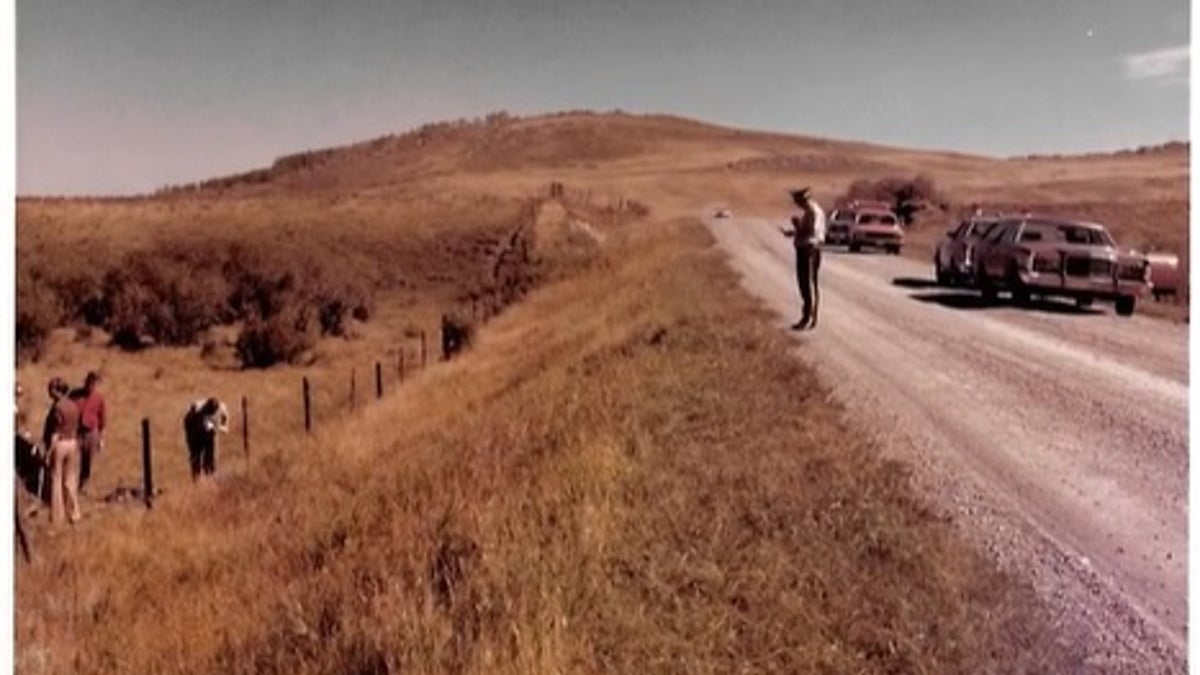
4. Barbaba MacLean, 19
MacLean moved from Nova Scotia to Calgary in 1977 and was working at a local bank.
The night she disappeared – Feb. 25, 1977 – she was last seen spotted leaving a hotel bar by herself. She was walking home.
About six hours later, a dog walker found her body in Calgary.
Read the full article here









